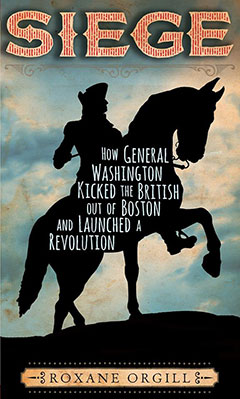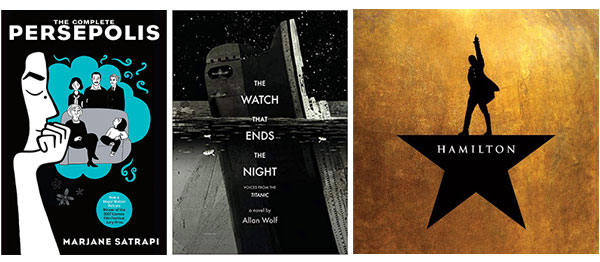Why write nonfiction in verse? If you do, is it still nonfiction? Good questions in a time when genres are expanding.
 I’ve used verse in two nonfiction stories: a picture book, Jazz Day: The Making of a Famous Photograph, and a book for ages ten and up, Siege: How Washington Kicked the British out of Boston and Launched a Revolution (Candlewick Press). As to why I chose poetry over prose, read on. And yes, to me, the story of the Siege of Boston in one hundred poems is nonfiction (although my publisher disagrees; more on that later.)
I’ve used verse in two nonfiction stories: a picture book, Jazz Day: The Making of a Famous Photograph, and a book for ages ten and up, Siege: How Washington Kicked the British out of Boston and Launched a Revolution (Candlewick Press). As to why I chose poetry over prose, read on. And yes, to me, the story of the Siege of Boston in one hundred poems is nonfiction (although my publisher disagrees; more on that later.)
First, a word on my tastes as a reader, and therefore, writer. I like concise writing. I prefer accessible over academic and would rather read a book of manageable length than a heavy tome.
It was 1776, by David McCullough, that started me on the Revolution thing. Four hundred pages, and it reads like a story. I’d never heard of the ten-month standoff between George Washington’s militia-turned-army in Cambridge and the British in Boston. It seemed to me that the revolution started there, rather than with the battles in Lexington and Concord.
Curious, I dove into Washington’s Papers, which, during the years I spent researching Siege, became increasingly available online, and are now, thanks to an agreement between the National Archives and the University of Virginia Press, fully accessible at founders.archives.gov. What a trove! I got into the General Orders, issued as Washington was putting together the first American army, and I couldn’t pull myself out. The Orders are surprisingly readable, loaded with detail and even, if you read closely, feeling, including the Commander’s despair over the unruliness of his fledgling outfit. “Fill up old necessaries” (outdoor toilets)… execute properly the reveille upon the drum… no firing of guns to start a fire for cooking….”
Wonderful, precise, concise language. Washington’s words prompted me to consider how I might take a different tack. I have long been attracted to alternative methods of telling a true story: graphic novels like Persepolis, verse novels like Allan Wolf’s The Watch that Ends the Night, about the Titanic, and the musical Hamilton. Impressed as I am by Wolf (the iceberg is a character! Brilliant!), I wanted to stay closer to the truth.

Then I happened upon a review of a revolutionary-war book for adults which used the phrase “cacophony of voices.” An “ah-ha” moment. I would give an account of the siege from many points of view: major figures such as Washington, his wife, Martha, and the bookseller-turned-artilleryman Henry Knox, but also lesser knowns: The Commander’s favorite aide-de-camp Joseph Reed, his servant-slave, William, a private; a lieutenant… while drawing on as many primary sources as I could. Rich material, irresistible. Consider Reed’s plaintive, telling comment in a letter to his wife: “Events here are very uncertain; don’t think of me too much or too little!”
Poetry brought immediacy, and the intensity of wartime. Verse’s looseness allowed me choices over characters and events. I didn’t have to find every private, just one who suited my literary purpose, like Samuel, whose diary told me of the mundanity of war as he penned, day after day, “nothing much happened.” I wouldn’t need to cover every skirmish, and there were a great many, just the whopper on Ploughed Hill where they tried to stop a cannonball with their feet. I could do the unexpected, like use an alphabet poem to convey how much stuff the British Army left behind when it fled.
 Verse freed me to write my story.
Verse freed me to write my story.
But I was not entirely free; I was restricted by the rules of nonfiction. It’s important for readers to know if a book is true, so I was careful to note the sources of every poem. I used quotes where possible and where they didn’t disrupt the poetry. Every event, setting, number, and character in Siege is real — except one. In a book for children about adults, I wanted to include a child. Although I located several accounts of boys who served in the war, none of the them was active in this period. I took a leap across the nonfiction divide and created a boy servant who was a composite of several real boys.
Perhaps that’s why my publisher chose to call the book a novel, I don’t know. To me it’s well-researched nonfiction in verse. Fortunately for writers and readers there is a place called children’s books in which writing and publishing such a thing — by whatever name — is possible.
[Orgill-Roxane-bio]
